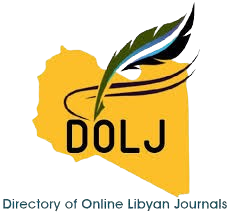Peer Review Process
Peer Review Process
- Double-blind review system
- Initial screening (1-2 weeks): The editorial board verifies that the manuscript is appropriate for the journal's scope, conforms to the template, and does not exceed the permitted level of plagiarism. At this stage, it may be returned to the authors for correction if minor changes are needed, or the manuscript may be rejected if it violates any of these requirements.
- The manuscript is reviewed by two experts, and if they disagree on whether to accept or reject it, a third reviewer is appointed to decide the matter, and the final decision is made by the editorial board (4-8weeks).
- Possible review outcomes:
- Acceptance (with/without minor corrections)
- Major corrections required, followed by re-evaluation
- Rejection
Reasons for Rejecting
There are several reasons that may lead to the rejection of a research paper submitted to the journal, especially if it fails to meet one of the journal’s publication requirements, in addition to other reasons classified as follows:
1. General Reasons for Rejection
- Lack of significance or originality of the research topic.
- The topic falls outside the journal’s scope and interests.
- The topic is outdated or does not align with current realities.
- Doubts about the research results.
- Excessive linguistic and spelling errors.
- Failure to comply with the journal’s guidelines.
- Poor citation and inaccurate referencing.
2. Scientific Reasons for Rejection
- The hypotheses assumed by the researcher are illogical, unproven, unclear, or there is a weakness in the study design.
- The obtained results are unsatisfactory.
- The statistical methods used are inappropriate or incorrectly applied.
- Use of references that lack the required modernity.
3. Ethical Reasons for Rejection
- In cases of plagiarism.
- In cases where the researcher falsifies the research.
- Submitting the research for publication in more than one journal or in more than one language simultaneously.
- Failure to transparently mention all participants involved in the research.






